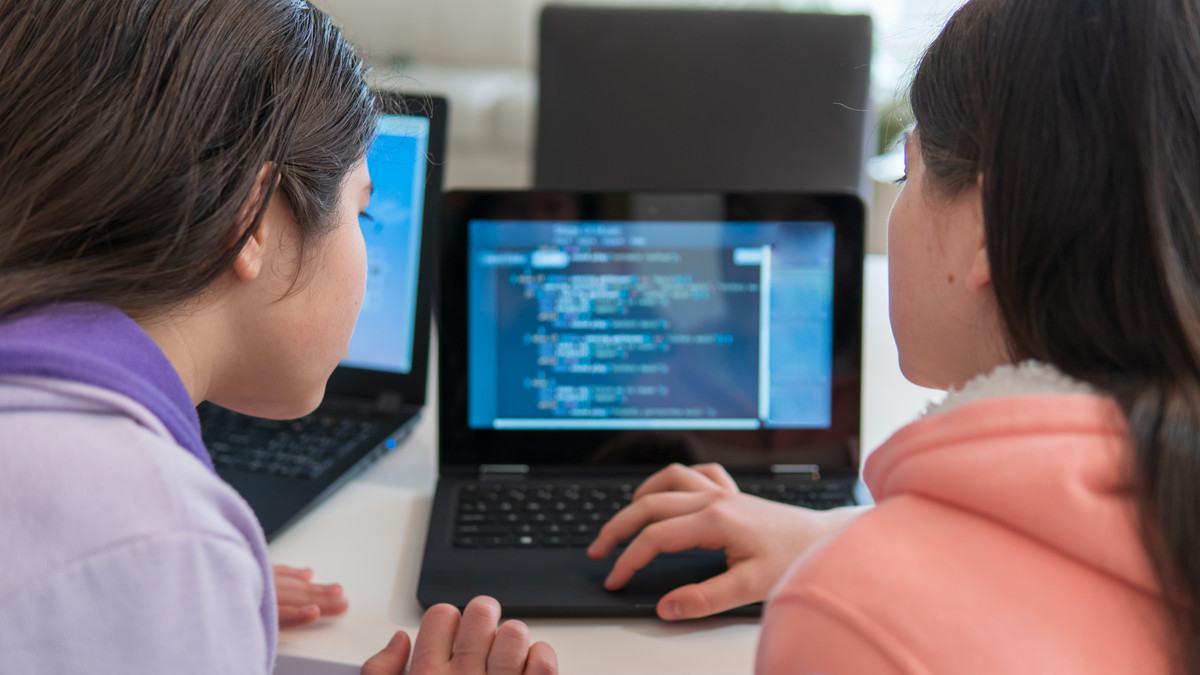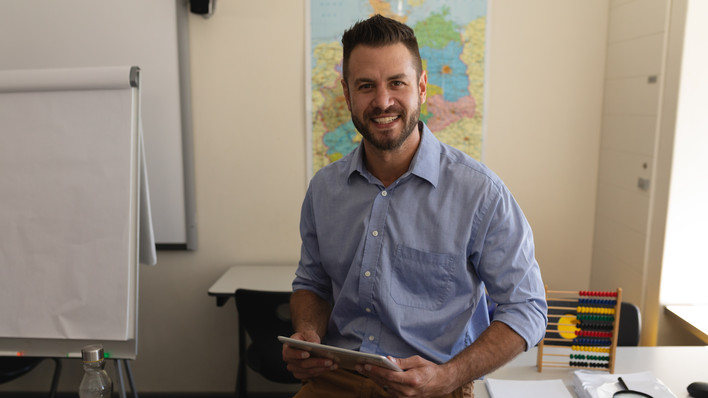Parkland Composite High School offered a lunchtime ‘Hour of Code’ in which students were given the opportunity to learn how to use coding technology. The interactive learning experience was delivered with resources from the Grand Yellowhead Public School Division’s (GYPSD) Digital Lending Library.
“The way I would define coding in a nutshell is creating of sequential steps in a logical way to achieve the desired outcome from a system,” said GYPSD employee Amelia Bird.
During the class Dec. 13, PCHS students who signed up were able to have hands-on experience programming microbits.
A microbit is a smaller and simpler version of the systems in average computers and phones. The microbit is hooked to a laptop via USB so that students can use computer programs to communicate instructions to the microbit’s light display and gyro-sensors (movement sensors).
It was up to the students to program the microbit to show a red flashing heart on the light display.
Although coding the flashing heart seemed to be a simple task, there was still the possibility of a few wrong turns along the way. Bird gave an example: “You might have a heart on the microbit, but it’s not flashing, so now what do you do? How do you edit the code to make the instructions more specific or clear?” With this example, Bird showed a simple way to understand how students need to make use of language and communications skills to create exact instructions for the object they are programming.
“It’s teaching the kids the skills of iteration, innovation, retrying, and dealing with frustrations when things don’t work,” she added.
As a pre-coding activity Bird played a game whereby students paired up and were tasked to instruct their partner on how to get from their seat to the door, while the other partner followed the first partner’s exact instructions. Students then learned to notice how and when miscommunications occurred, and how to correct them to get their partner to the door.
“It’s not necessarily the final product, it’s the learning that happens through engaging in the task. The failures are just as important, if not more important, than what you wanted to happen,” said Bird.
Bird travels to schools from Evansburg to Jasper and Grande Cache to give students access to unique technological resources through the Digital Lending Library program. This program allows teachers in the area to enhance their curriculums using technological resources that they normally would not have access to.
According to Bird, the program “exposes students to coding technology and understanding where the field is going, because a lot of the jobs in the future are going to be very much based in the digital world.”
“A lot of jobs are becoming more automated, so if students learn the skills to work with the automation; to know how to fix it, adapt it, or modify it, they will be very employable,” she said. “A lot of medical surgeries now are done by automated robots. A medical professional is needed to know how to do the procedure, but they still need someone with the skills to create the proper coding sequences to make the machine accurately carry out the procedure.”
This article was written by Brianne Benson from Weekly Anchor, The; Edson, Alta. and was legally licensed through the NewsCred publisher network. Please direct all licensing questions to legal@newscred.com.
![]()



